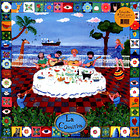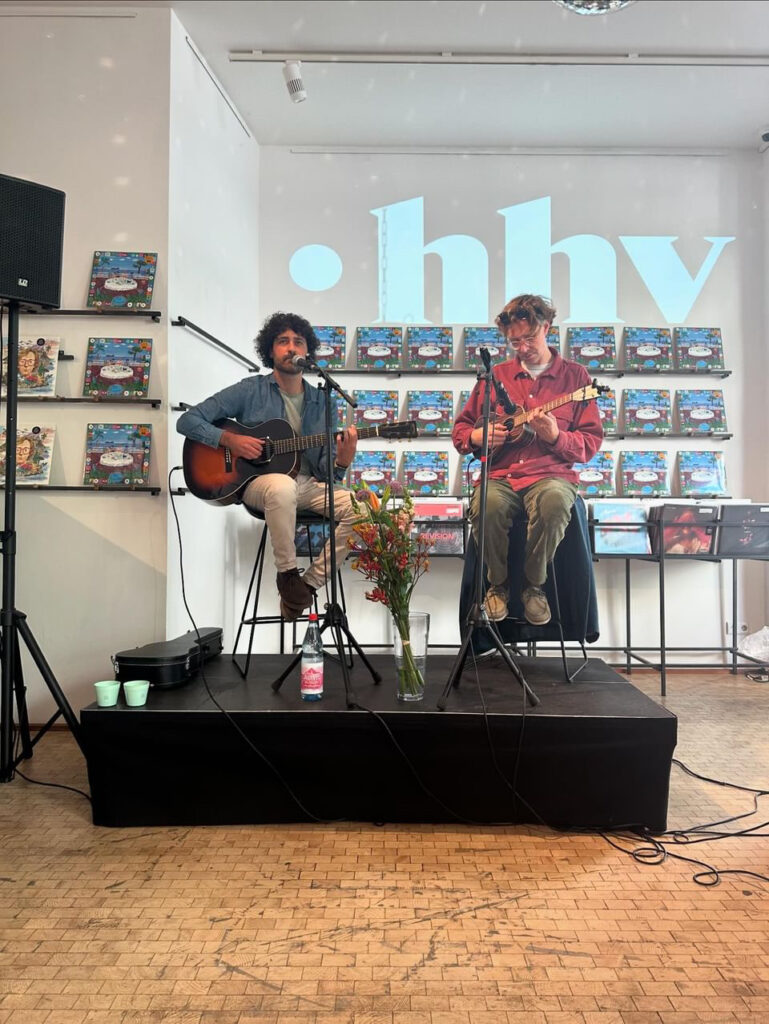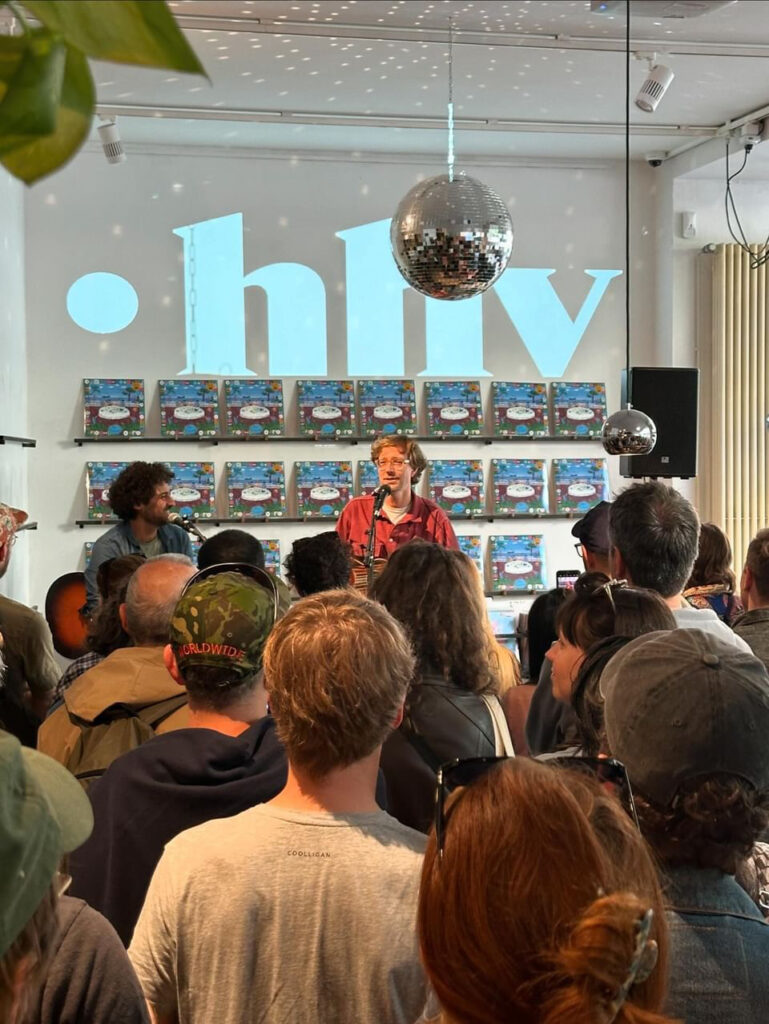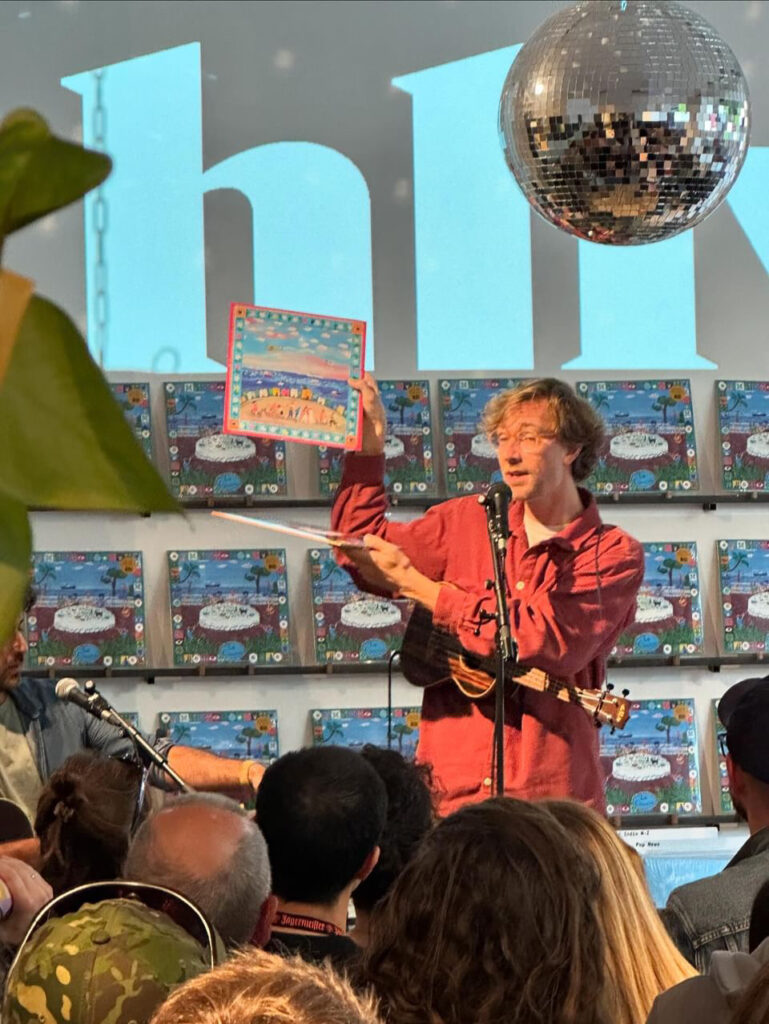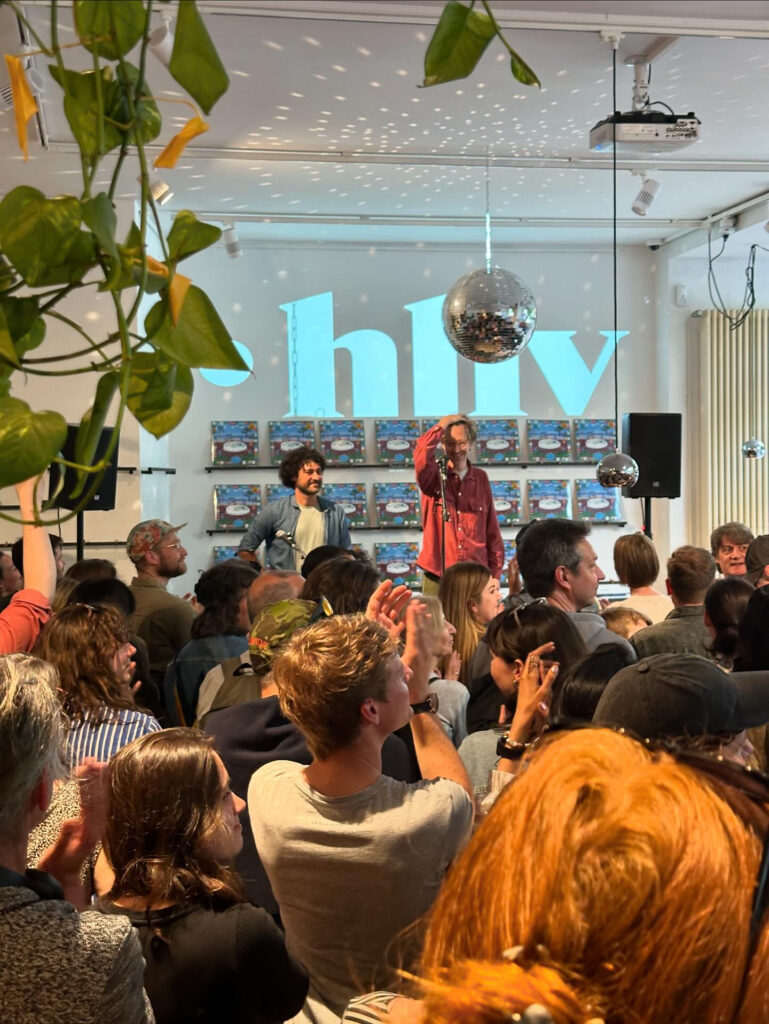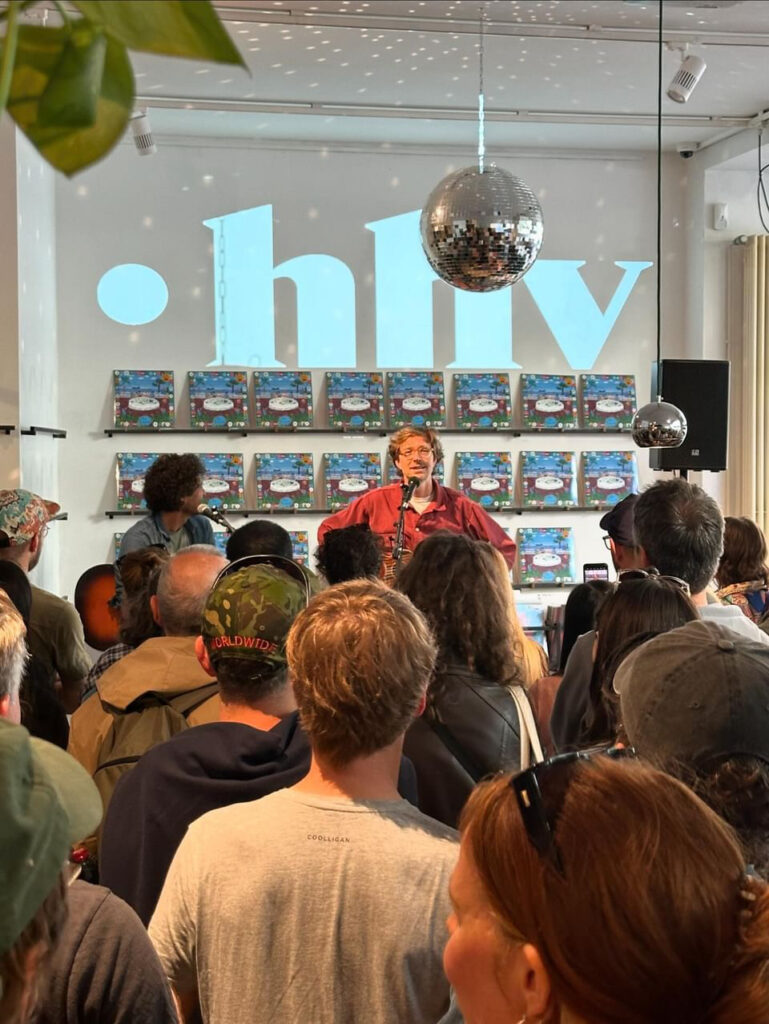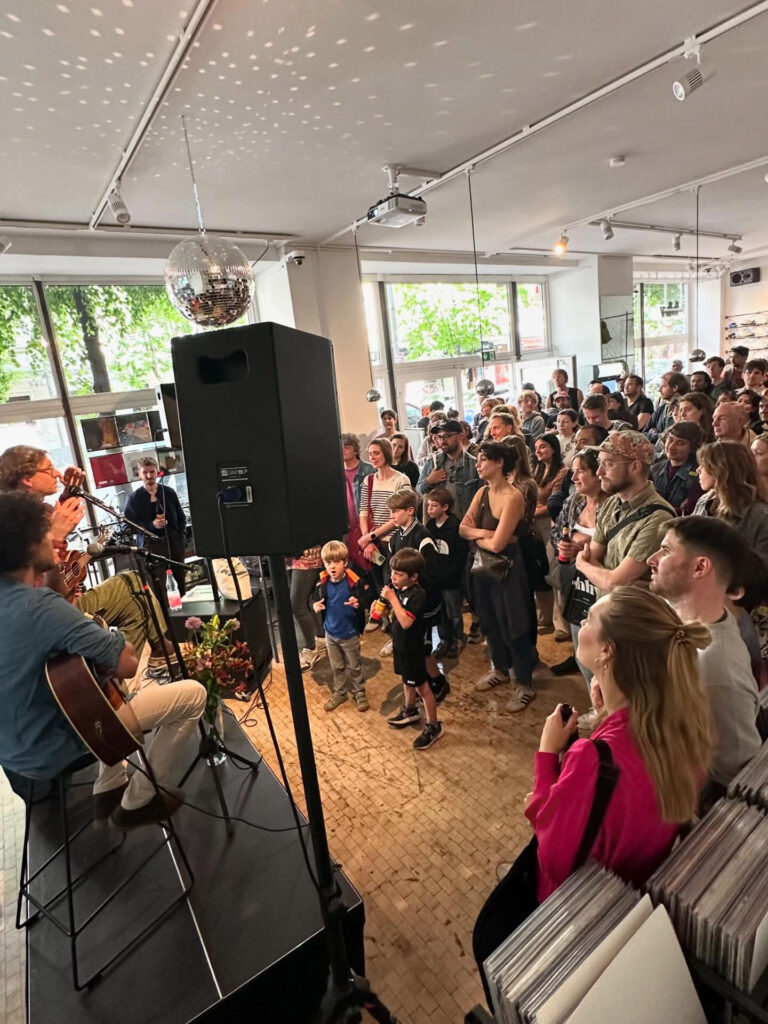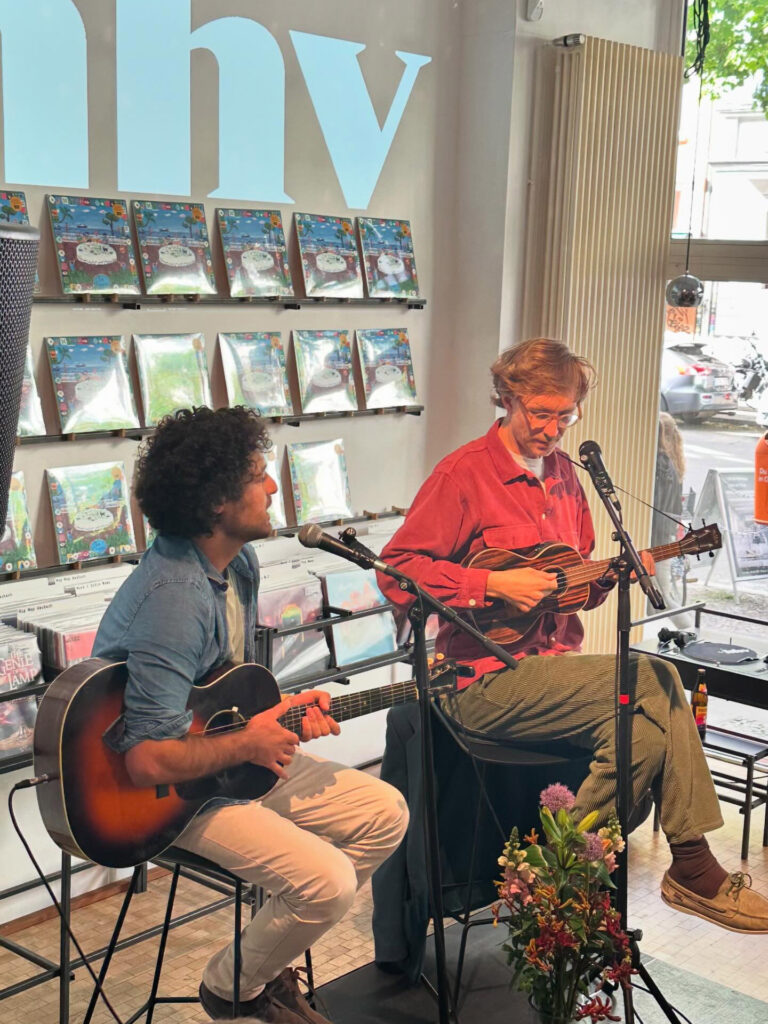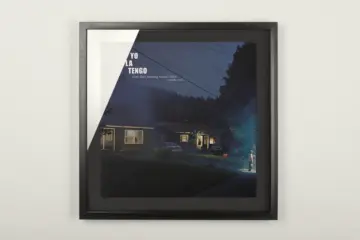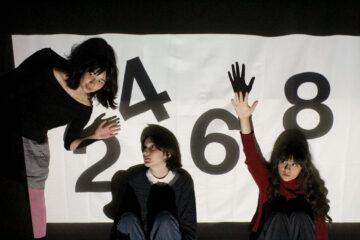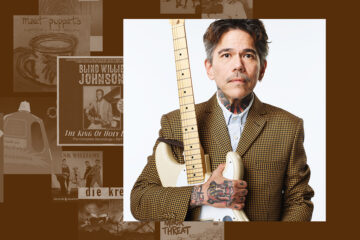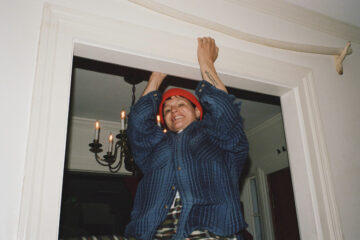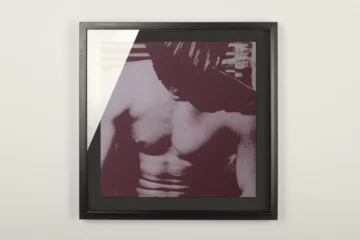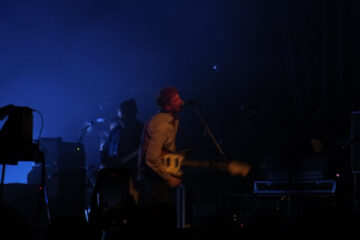Two things in particular stand out when talking to Erlend Øye: his openness and curiosity. For him, there is no standard, no “normal”. Again and again, he lingered in places and got to know people whom he later met again. He was inspired by the unknown. Always moved through the world with open eyes and ears. Traveled as an autodidact through musical styles and languages. Some of the connections he established in places made him stay. Erlend Øye was a networker before the term was even popular.
The conversation with him in July takes place on Zoom between Italy and Norway. However, it is not the Norwegian who is sitting in the country of his birth, but the interviewer. And Erlend Øye promptly asks her to go outside and show her the landscape. A conversation about perseverance, self-confidence, and the courage to keep reinventing oneself.
Erlend, you’ve lived in many places and created many musical projects. Which advice would you give to your younger self?
Erlend Øye: If you are interested in anything, do it for years. With persistence, you’ll become great at it. With music, I knew that is what I could keep doing. I will never get tired of it.
Why is persistence key?
Erlend Øye: When starting something, you rarely become successful in just one year. You won’t reach the potentially great second year if you quit. You will keep on growing when you never stop learning.
But how do you know whether to stop or keep going?
Erlend Øye: It’s important to be self-critical and try to objectively judge yourself. You should encourage people to be truthful to you. It’s better to hear that what you’re doing sucks than living in illusions. Back in Bergen where I grew up, the feedback culture was amazing. I was surrounded by honesty.
How did you get into music in Bergen?
Erlend Øye: Some classmates had guitars and I looked fun. So, I bought my first guitar at the age of 16. No one in my family was really into music, which was nice. Music was my own idea. I had to figure it out myself. There were many wannabe musicians in my hometown. We all learned from each other and spent our free time writing songs and forming bands. We learned by doing instead of going to music school. I played with Eirik Glambek Bøe back then, with whom I later created Kings of Convenience.
What kind of music did you listen to back then?
Erlend Øye: Mostly I listened to Norwegian bands. I was a Pink Floyd fan and inspired by the first acoustic records of the artist Beck. But Norway was very isolated in the 1990s. Few bands came through. The music environment was self-contained. We watched and discussed the local music scene. Big names like Nirvana didn’t come here.
»I noticed that better music came out of Bergen than out of Berlin. That surprised me.«
Erlend Øye
What inspired you in this music bubble back in Norway?
Erlend Øye: One evening, I saw an acoustic show of a band from Bergen. I was struck by the harmonizing sounds they created and eager to learn how that is done. Another one of my early mentors was a Chilean guy who grew up in Norway. He convinced me that a clean electric guitar put straight into an amp without any distortion to any echo sounds very pretty. This influence was later attributed to the sound of „The Whitest Boy Alive”.
In 1997 you left Bergen.
Erlend Øye: London seemed like the place to learn about music. It was Europe’s capital of music at that time.
Which challenges did you face when moving there?
Erlend Øye: I didn’t know people in the music industry at first. Metaphorically speaking, the doors were shut for me, I had to really force the doors open.
I stayed for free with friends, but that wasn’t sustainable. Then I was renting a small room for six weeks. I was working at a market around Christmas, selling clothes, but there weren’t many customers. My boss could no longer hire me. I was broke and left London without paying my rent. After arriving in Manchester, I met the band members of Alfie. Being around these artists was a great musical education.
What do you see as your personal breakthrough?
Erlend Øye: After my time in England, I went back to Norway. There, we recorded a demo in 1999 with Kings of Convenience and sent it to contacts I had made in England. We got a record deal. It made us famous around Europe.
And then you had life gigs.
Erlend Øye: The touring started as a side hustle but then became what our career is about. You can hear the good chemistry of band members on a record and see it when they tour. With all my bands I feel that the versions of the songs have evolved because we would rarely listen to the original record before a concert and just play it as we remembered it.
Around two years after you went to England, you decided to move to Berlin. Why?
Erlend Øye: In 2002, one of my friends from Norway was moving away from Berlin, and I could take his flat over. I had a record deal and therefore had money, I could afford the rent. Back then there wasn’t much internet. I had to find my way by going to places. So I just walked around and met people. I explored the techno scene. That was a whole new world for me. I wrote a lot of music for all my bands because I had so much time in Berlin.
Erlend Øye bei uns im HHV Store
You had more time in Berlin?
Erlend Øye: It felt like it was due to the endless winters. At four o’clock, daylight was gone. I was sitting inside. It was a great place to be alone with my thoughts and make a lot of music.
What surprised you?
Erlend Øye: I noticed that better music came out of Bergen than out of Berlin. That surprised me.
Did you find an answer to why that is?
Erlend Øye: There were a lot of talented people in Berlin. At the same time, many just wanted to have the lifestyle of a musician. These people didn’t stick to music for long. Berlin has many opportunities, but Bergen not so much. When I was 16 and started playing guitar, I learned chords and wrote songs. It was consistent, and the people around me were consistent. Because of not have endless options, I could funnel creativity.
You created different projects over the years and toured in different constellations simultaneously.
Erlend Øye: Last year I performed with „The Whitest Boy Alive”, „Kings of Convenience” and „La Comitiva”.
Is it challenging to have so many different musical personas?
Erlend Øye: It’s a matter of good logistics. Sometimes the audience discovers a band five years later or 20 years later. I can’t foresee when people want to hear about one specific project. For example, the first year we toured with „The Whitest Boy Alive”, the audience mostly wanted to hear „Kings of Convenience”. And Then The Whitest Boy Alive” found a fanbase later and I ended up touring with multiple of my bands around the same time.
The Whitest Boy Alive isn’t creating new music anymore.
Erlend Øye: Yes, but we still play gigs sometimes. A big problem was that I had developed a tinnitus That is also the reason I stopped DJing. It was just too tough on my ears.
How did you gain this confidence to just keep going?
Erlend Øye: My mother loved me very much. Because I started off with this big bag of love, I was able to approach the world with self-confidence. In the beginning, this was the only skill I had.
»There’s a lot of beauty in Syracusa, but at the same time, it’s not too pretty either. If feels real.«
Erlend Øye
Together with your mother, you moved to Sicily, where you currently reside. How did you end up in Italy?
Erlend Øye: My mom liked this country and joined me whenever I had gigs here. We first visited my current hometown Siracusa in 2008. We were amazed by the kind and hospitable people there. After coming back again and again, we bought a house and moved here. My mom died in 2016. In Siracusa, I have people that I care about and who care about me. The air is clean, the food is tasty and there’s nature. There’s a lot of beauty in this town, but at the same time, it’s not too pretty either. If feels real.
Is that were you met the members of La Comitiva?
Erlend Øye: The first people that I met here were not people that I now play music with. I first met people that I just liked as people. We were playing football and swimming.
You have your Comitiva here. How did you learn about the meaning of this word?
Erlend Øye: Many of my friends in Siracusa use the expression „Comitiva”. It is an antiquated term that describes the group of people that you hang out with in a certain period. There can be a Comitiva for a summer, for example, consisting of people who regularly spend time together. It connects the people with a time and a place. Someone comes, enters a Comitiva for a while, and then maybe they move to another town, so they’re no longer part of your everyday-Comitiva.
The songs on »La Comitiva« were written and partly published between 2019 and 2024. For example, »For The Time Being« sounded melancholic to me. I interpreted it with the theme of acceptance. And then »Upside Down« comes right after it, and sounds energizing and like a call to action.
Erlend Øye: These songs are written over a long period. If I had written all the songs in the space of six months, they would probably sound quite similar. I’m happy about the variation on this record. Between starting to work on this album and the release, there was COVID and the release of a Kings of Convenience record.
What do you value in people that you work with?
Erlend Øye: I value excitement and people that don’t complain much. I admire people who don’t give up and try again when they fail.
You seem to have gotten comfortable with seeking discomfort, for example with singing in different languages.
Erlend Øye: It is inspiringto write in a new language. I wrote my first song in English in 1996. It was so much fun: all these words, so many unused ingredients! My experience with Italian was similar. Every new word learned was like a melody never heard before. For a songwriter, learning a language is great. You’ll never run out of inspiration.
What is your definition of home?
Erlend Øye: Well.. this house where I’m in is a home to me. But I feel at home in a lot of places. I have a lot of friends that I don’t see daily, but when I see them, they make me feel home, and safe. Home is a vague concept.


